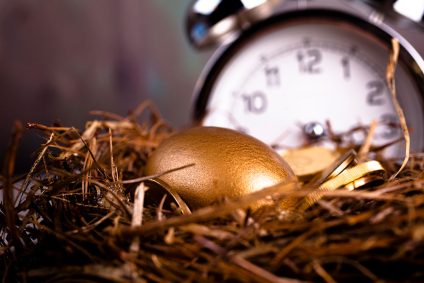Look away from the screen

As doctors we might prescribe a healthy dose of TLC to cure all kinds of ills but too much attention in other areas is not always advantageous. Take houseplants, for example – more are killed with kindness than lack of care.
The same can be said of portfolios. The technology at your fingertips makes it all-too-easy to glance at your financial assets repeatedly to check on real-time investment performance. New research tells us the average person checks their phone every 12 minutes and that one in ten of those surveyed peeks once every four minutes.
There are many reasons why constant checking of your fund performance is a bad idea. In reality, it can lead to emotionally-led investment behaviour which will do more harm to your returns than any dip in the markets.
Investors who check their portfolios too often will perceive investing to be riskier than those who practice ‘watchful waiting’. Studies have shown that checking portfolios quarterly rather than daily could reduce the chance of seeing a ‘moderate’ loss (one which is -2 per cent or more) from 25 per cent to 12 per cent.
Psychologists Kahneman and Tversky revealed that investors suffer from ‘loss aversion’ meaning that we feel the pain of losing money nearly twice as much as we enjoy the pleasure of gaining money. They claim that investors who ‘got the most frequent feedback (and thus the most information) took the least risk and earned the least money’. The more you analyse your portfolio, the more likely your emotions rather than your head will take control.
Markets go up and down, every hour, every day. The snapshot you see is not a reliable valuation of your financial position. It is normal to wish for certainty and to worry more about short-term losses. It can be difficult to stick to the game plan and appreciate long term incremental gains. However, well-structured investment portfolios seek to ensure that any market conditions can be weathered in the future.
As soon as you have a solid portfolio in place, you can:
– Embrace the uncertainty of markets – that’s what delivers strong, long-term returns
– Accept that you cannot time when to be in and out of markets. This is impossible.
– Remember that a fall does not turn into a loss unless you sell your investments at the wrong time.
– Be confident that you have many investment eggs held in several different baskets.
– Count on your financial planner to act as a behavioural coach to help you stay the course.
– Leave checking the health of your portfolio to once a year.


